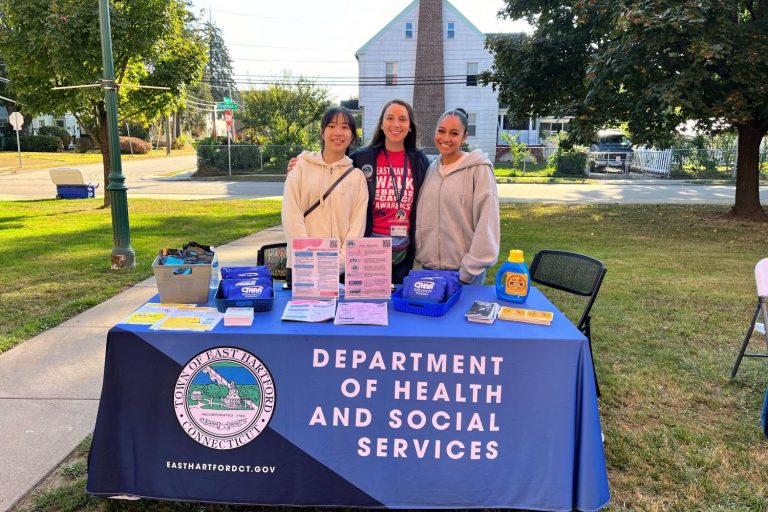New study from UConn Rudd Center finds that children as young as age 3 are exposed to unhealthy food brand promotions when viewing videos on mobile devices
- category: inchip
- columns: 4
- pictures: true
- number-of-posts: 1
- show-excerpt: false
- show-date: false
- safe-fetch: 1
Through the program, UConn students help Connecticut communities tackle the opioid crisis, from Narcan training to safe medication disposal techniques
- category: inchip
- columns: 4
- offset: 1
- pictures: true
- number-of-posts: 1
- show-excerpt: false
- show-date: false
- safe-fetch: 1
During the 2022-2023 school year, about 28 million children ate lunch at school, with more than 14 million eating breakfast there
- category: inchip
- columns: 4
- offset: 2
- pictures: true
- number-of-posts: 1
- show-excerpt: false
- show-date: false
- safe-fetch: 1
Directors of InCHIP’s Weight Management Research Group Tricia Leahey and Amy Gorin’s latest study published in JAMA Internal Medicine underscores the power of patient-provided care for weight loss maintenance
- category: inchip
- columns: 4
- offset: 4
- pictures: true
- number-of-posts: 1
- show-excerpt: false
- show-date: false
- safe-fetch: 1
The Center investigates strategies to address food insecurity, poor nutrition, and weight bias through research and policy
- category: inchip
- columns: 4
- offset: 5
- pictures: true
- number-of-posts: 1
- show-excerpt: false
- show-date: false
- safe-fetch: 1
In response to an evolving federal research funding landscape, InCHIP is working to expand support and resources for principal investigators.
- category: inchip
- columns: 4
- offset: 6
- pictures: true
- number-of-posts: 1
- show-excerpt: false
- show-date: false
- safe-fetch: 1
May is Women’s Health Month, let’s talk about menopause
- category: inchip
- columns: 4
- offset: 7
- pictures: true
- number-of-posts: 1
- show-excerpt: false
- show-date: false
- safe-fetch: 1
Details on how much violent death is in the state has been hard to come by until now
- category: inchip
- columns: 4
- offset: 8
- pictures: true
- number-of-posts: 1
- show-excerpt: false
- show-date: false
- safe-fetch: 1
School and child health researchers spoke with undergraduate Public Health House students about their research and career paths, continuing a seven-year collaboration
- category: inchip
- columns: 4
- offset: 9
- pictures: true
- number-of-posts: 1
- show-excerpt: false
- show-date: false
- safe-fetch: 1
Students and staff benefit from strategic actions aligned with the Whole School, Whole Community, Whole Child Model
- category: inchip
- columns: 4
- offset: 10
- pictures: true
- number-of-posts: 1
- show-excerpt: false
- show-date: false
- safe-fetch: 1
Our word of the month for April is “Community” and at UConn Health, community isn’t just a word, it’s the foundation of everything we do. Whether it’s the connections between our patients and providers, the collaboration among our teams, or our commitment to serving those beyond our walls, community defines who we are.
- category: inchip
- columns: 4
- offset: 11
- pictures: true
- number-of-posts: 1
- show-excerpt: false
- show-date: false
- safe-fetch: 1
Gestational diabetes impacts 2 to 10% of U.S. pregnancies, and about 50% of patients with GDM will develop Type 2 diabetes
- category: inchip
- columns: 4
- offset: 12
- pictures: true
- number-of-posts: 1
- show-excerpt: false
- show-date: false
- safe-fetch: 1











